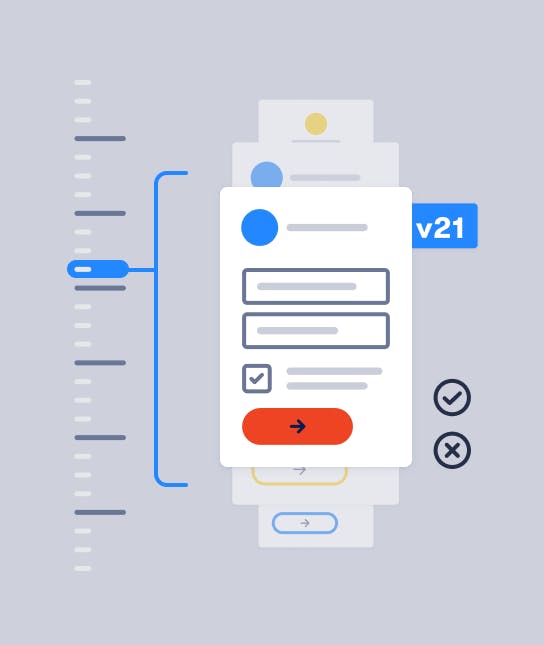Flow Schemas: Guarantee Data Consistency Across Form Variants
Define required sets of answers that must be collected in a form before publishing a form. This ensures that critical fields are always present and correctly formatted. By enforcing flow schemas, teams can confidently make form updates without risking the removal or alteration of necessary information.
Ensure required fields are collected
Define key data points that must be collected in each form. If you require fields like first_name, email, or other important details, the schema will enforce that these fields are present before deployment. This guarantees that essential information is always captured, no matter how many changes are made to the form.

Prevent deployment of incomplete forms
With flow schemas in place, any form variant that doesn't conform to the required fields or has incorrect data types will be blocked from deployment. This not only prevents errors in form submissions but also ensures that downstream systems relying on this data remain functional and do not break due to missing or malformed fields.

Version control for evolving data needs
Flow schema versions allow you to manage changes, such as adding new fields or modifying existing ones in the schema, without breaking existing forms. Using semantic versioning ensures a smooth transition between schema updates, giving you control over data consistency while accommodating new requirements.

Collaboration between teams
Flow schemas create a bridge between non-technical content authors and developers. Content authors can make changes and experiments with confidence, knowing that the schema will prevent any accidental removal or misconfiguration of critical fields. Developers, in turn, can trust that the data needed for downstream processes will always be present and in the correct format. Find out more about roles and permissions in Formsort.
